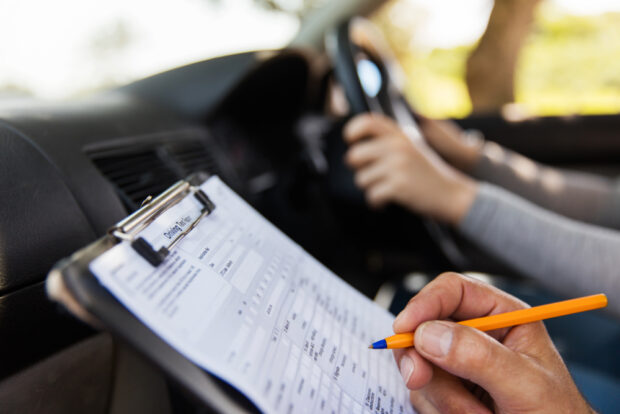
Yesterday (5 July) I attended the Transport Select Committee to talk about the work of Driver and Vehicle Standards Agency (DVSA) and what we are doing to recover the driving test service.
I explained to the committee that we missed out on doing about one million tests because of the pandemic. Since the COVID-19 restrictions ended we have made over a million additional driving tests available due to the measures we have taken. This means most people who had a test booked and could not take it during the pandemic will now have had the opportunity to take a driving test or have their test booked.
But driving test waiting times and the demand for tests are still a lot higher than pre-COVID-19. In this blog post I want to talk about what is causing the high level of demand and explain the effect this is having on driving test waiting times.
What is causing the long waiting times
The 3 main reasons why driving test waiting times are longer are:
- an increase in forecast demand caused by a stronger than expected economy
- sustained industrial action
- low customer confidence in driving test availability, resulting in a change in customers’ booking behaviour
We are currently expecting waiting times to remain long throughout this year and into 2024.
To show how each of these reasons have affected car driving test waiting times, I’d like to explore each one in a bit more detail.
Increase in demand for driving lessons and tests

In 2022 we carried out 1.8m car driving tests, 6% more than pre-COVID-19 levels. This increase in throughput was believed to be due to the pent-up demand caused by the disruption to the service caused by the pandemic.
We forecasted that this increase in demand would reduce and return to normal levels. So far, in 2023 up to the end of May we have received around 800,000 new bookings for driving tests which showed that the increase in demand for tests has continued. This has potentially resulted in a 7% increase in demand for driving tests compared to before the pandemic.
The interim findings from the recent ‘Working as a driving instructor’ survey also indicate that you are still facing increased demand for lessons. This supports the fact that the demand to gain a car driving licence has increased.
Thank you, if you have already completed the survey. The interim results of responses between 1 and 19 June also show that:
- on average you train 20 pupils at any given time
- only 28% of you currently have any availability to take on new pupils, compared to 32% in October 22 (down 4%).
- 63% of you currently have a waiting list, with just over a quarter of you stating that you have a waiting list of more than 10 learners
As well as increased demand, there have been other things that have affected our driver testing service, such as industrial action.
Impact of sustained industrial action
The recent national and regional industrial action that has affected driving tests going ahead has also impacted driving test waiting times.
Since the industrial action started in December 2022, there have been 48 days of action that directly affected driving tests. This resulted in around 25,000 driving tests being cancelled and rebooked due to industrial action. This meant that your pupils whose tests were affected had to wait longer to take their test. It also reduced the number of available test appointments, for new bookings leading to an increase in waiting times. To minimise the effect the action had on tests, we:
- increased the number of examiners working in regions where strikes were taking place
- offered tests over weekends and bank holidays
- asked all DVSA warrant card holders to do driving tests
The planned industrial action in June was called off to enable further discussions to take place between the unions and the government.
Changes in customers’ booking behaviour
In the past, a learner would find an instructor and have a few lessons before starting to study for their theory test. This allows them to apply the driving theory knowledge they are learning to the practical skills they are using in their lessons. As many of us learn better through doing, rather than reading.
Today, many learners are studying and taking their theory test before they have ever sat behind the wheel of a car. This is concerning as it means that some learners may struggle to see the connection between the theory and their practical driving skills.
In the past, most learners would wait until their instructor told them they were ready before booking their test. This was usually 6 to 8 weeks before the date of their test.
Now, due to a lack of confidence in the availability of tests, many learners are booking straight after they have passed their theory test. In some cases, this may mean that they are booking their driving test before they have sat behind the wheel.
This results in many learners having to change the date of their test on multiple occasions as they are not ready. As a consequence, those who are test ready may find it more difficult to get one. This includes those who have recently failed a test and are ready to retake after a few lessons to hone their skills, or those who need to drive for their job, such as nurses and carers.
While business and individual booking behaviour stays this way, our ability to reduce driving test waiting times as quickly as we want will be impacted. You can read my blog post about what we are doing about bots and the reselling of driving tests to find out what we are doing to tackle those reselling tests for a profit.
In our next blog post we’ll explain the things we can and cannot do to address the long driving test waiting times and the areas where we will need to carry out further research with you, your pupils and their parents, to better understand booking behaviour.
Source link
#causing #long #driving #test #waiting #times
Contains public sector information licensed under the Open Government Licence v3.0

